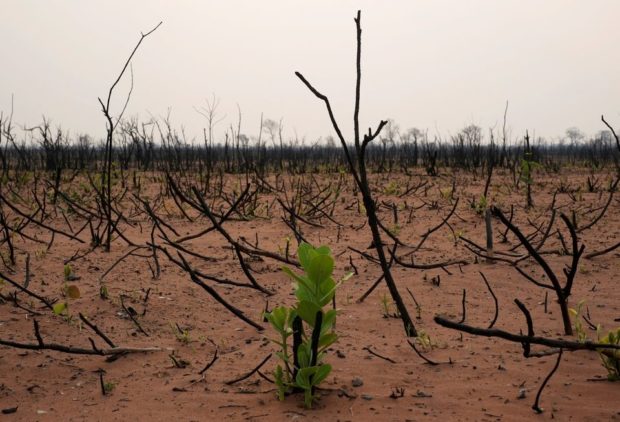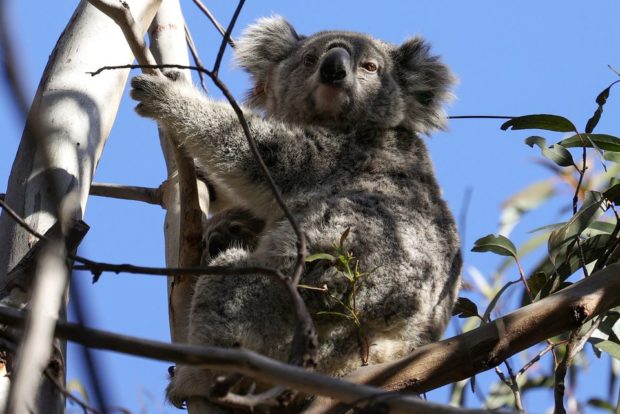UN biodiversity talks in Nairobi push for conservation by 2030

Plants are seen in a burned forest at the Nembi Guasu conservation area in the Charagua, Bolivia, September 24, 2019. REUTERS
U.N. negotiators began talks Tuesday in Nairobi toward reaching a new global pact for protecting nature and wildlife, after a previous round of talks in March failed to make progress.
With scientists warning that an estimated 1 million species are at risk of extinction, the United Nations is asking countries to designate 30% of their land and sea areas for conservation by 2030.
ADVERTISEMENT
Meeting this “30-by-30” goal would help protect the world’s environments against poaching, pollution or encroaching human development, scientists say.
Earth has seen five mass extinction events and scientists believe we are now in the sixth, with animal and plant species going extinct at a rate not seen in 10 million years.
Only 17% of the Earth’s land areas and 7% of the ocean currently fall under some form of protection.
The talks Tuesday were buoyed by a sense of progress after organizers announced the U.N. Biodiversity summit, or “COP15,” would be moved to Montreal, Canada, after being postponed four times in China due to the COVID-19 pandemic.
“We have every reason to be fully confident that the global biodiversity framework will be adopted”, said China’s environment minister, Huang Runqiu, who is also the COP15 president.
Already, more than 90 countries, including the United States, have committed to the 30-by-30 target, according to the High Ambition Coalition for Nature and People.
A mother koala named Kali and her joey are seen in their natural habitat in an area affected by bushfires, in the Greater Blue Mountains World Heritage Area, near Jenolan, Australia, September 14, 2020. REUTERS
The head of the U.N. Environment Program implored delegates on Tuesday to reach a final draft agreement during the Nairobi talks this week. That draft would then be voted on at COP15 in December.
“Here today and these days, it is imperative that you make significant progress to ensure success at COP15 and thereafter,” UNEP Executive Secretary Inger Andersen said during Tuesday’s opening plenary in the Kenyan capital.
But several sticking points remain, with the draft text currently riddled with square brackets that indicate a lack of agreement on issues such as goals for reducing pesticide use.
ADVERTISEMENT
“Without numbers, the framework will remain aspirational and will be set up to fail,” Andersen said.
Funding remains another area of contention. A coalition of environmental groups, including the International Union for Conservation of Nature and World Wildlife Fund, are calling for wealthy nations to contribute $60 billion per year of the $700 billion needed annually to address the biodiversity crisis.
“Much of the global loss of biodiversity is driven by high levels of consumption in wealthy nations,” said Brian O’Donnell, director of conservation non-profit Campaign for Nature.
Another $500 billion could be achieved by slashing harmful subsidies for fossil fuels and agriculture, green groups said.
The U.N. also urged delegates to address how they would plan for and report progress on each of the targets. The world’s previous conservation targets – known as the Aichi targets – expired in 2020 without a single one being fully achieved.
RELATED STORIES
UN biodiversity chief says world has reached ‘moment of truth’ on conservation
One Planet Summit: no climate fix without biodiversity
Nature loss means deadlier future pandemics, UN warns
Our broken relationship with nature
Subscribe to our daily newsletter
Read Next
Estonia protests to Russia over airspace violation as Baltic tensions rise
EDITORS’ PICK
MOST READ
Don’t miss out on the latest news and information. 
View comments


